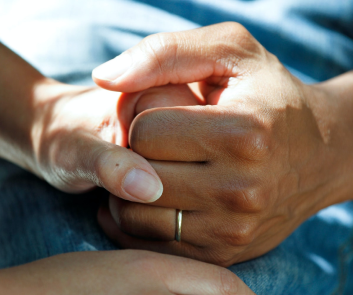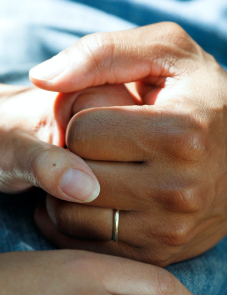If you have never been through it before dealing with a death can be extremely daunting, especially if it is a loved one and you are distraught. So what do you need to do, and who do you need to notify? Hopefully, our short guide as to what to do after someone dies will prove useful and remember you can register a death with Life Ledger.
How Do I Find a Funeral Director?
Hospices and hospitals are set up to deal with deaths, and will keep hold of the body for a reasonable amount of time to allow you to make further arrangements. Most people call a funeral director or undertaker, although you don’t necessarily have to, the Natural Death Centre has some good advice on what to do if you don’t. A funeral director will collect and take care of the remains, and help you organise the funeral. They are also a good source of advice as to what to do next.
Officially register the death?
The death needs to be registered within five days in England, Northern Ireland and Wales, and within eight days in Scotland, and must be done so by either a close relative, someone who was present at the death, the person who is arranging the funeral or an official of the nursing home or hospital where the death took place. If the death was at home or in a nursing home, the GP who has been looking after the deceased will issue a Medical Certificate of Cause of Death (MCCD). In a hospital, you may have to wait for administrative staff to contact you to arrange for you to collect the Certificate. This Certificate is required for you to be able to register the death.
The death must be registered at the local Registry Office. This link will allow you to find the nearest.
The Registrar will tell you all the documents that you need to bring with you as well as the MCCD, but as a minimum you should have the full details of the deceased, including date and place of birth, their address and last occupation, the details of their spouse (if it’s not you) and their permission to give their details. They may also need the deceased’s driving licence or passport, marriage or civil partnership certificate, proof of address.
You should request four or five copies of the death certificate. While it’s free to register the death, there is a fee for each copy.
How do I make Funeral Arrangements?
If you’re going to have a traditional funeral director, it is advisable to get at least two quotes. The National Association of Funeral Directors has a good website – https://funeral-directory.co.uk that shows you all the local firms.
However, there are other options available to you and the Natural Death Centre will be able to help you decide what may be best for you.
Who do I tell first?
You have to start telling companies, and each of them may need something different from you. First you need to discover what accounts the deceased had, research how to notify them and then potentially spend
hours and hours filling in the same forms over and over again.
At Life Ledger we know and understand the administrative burden of informing all of the companies and organisations who need to know. It can be a frustrating and repetitive task and by registering a death with us we can help simplify and streamline the process.
For public sector notifications (council tax, benefits, passport, driving licence), use the Tell Us Once notification system to inform all the departments, including HMRC, DWP and your local council.
Others who you may need to notify are: any hospital the deceased may have been attending, the family doctor (if he didn’t issue the death certificate), dentist, optician, the mortgage provider or landlord, their employer and trade union (if not retired), car insurance company, gas, electricity, and water providers, telephone and internet suppliers, store card suppliers and magazine subscriptions.
How to apply for probate?
In some circumstances you have to apply for the legal right to deal with someone’s money, possessions and property, and that is called “applying for probate”. If you have a Will you are applying for a Grant of Probate. If not you are applying for Letters of Administration. There is a Government website that will guide you through the process.
If granted, and you have the authority to commence, then you need to gather all the information together before you can begin the process of distributing the Estate.
There are a lot of specialist probate firms and solicitors out there who can guide you through the process, so you will need to choose the right one for you.
Who can I talk to about bereavement?
We don’t talk enough about death, and when a loved one dies it can be a very isolating experience. Time helps, but sometimes nothing can really ease the pain. But it’s good to talk and there are some extremely good bereavement charities out there who can really help, including:
https://www.alzheimers.org.uk/
https://www.bereavementadvice.org/
https://www.thegoodgrieftrust.org/
https://www.griefencounter.org.uk/
https://www.griefincommon.com/
Please do realise that you are not alone in this, hundreds of thousands of people go through this for the first time every year, and it’s good to talk.





